Wiccan spells are the embodiment of ancient traditions interwoven with contemporary beliefs. Wicca, as a modern pagan religious movement, stands out for its embrace of nature, spirituality, and magic. Central to Wiccan practices are spells—rituals meticulously designed to manifest intentions, facilitate healing, and establish a profound connection with the mystical energies that permeate the universe. Wiccan symbols play an integral role in these practices, infusing spells with deeper meanings and connections to the spiritual realm. In this article, we embark on a journey into the enchanting realm of Wiccan spells and symbols, where we will explore their historical roots, fundamental principles, and contemporary applications.
The Origins of Wiccan Spells
The origins of Wiccan spells can be traced back to a combination of ancient pagan traditions, folk magic practices, and esoteric beliefs. While Wicca itself is a modern religious movement that emerged in the mid-20th century, its spellcasting techniques draw inspiration from a wide range of historical sources. Here are some key influences on their origins :
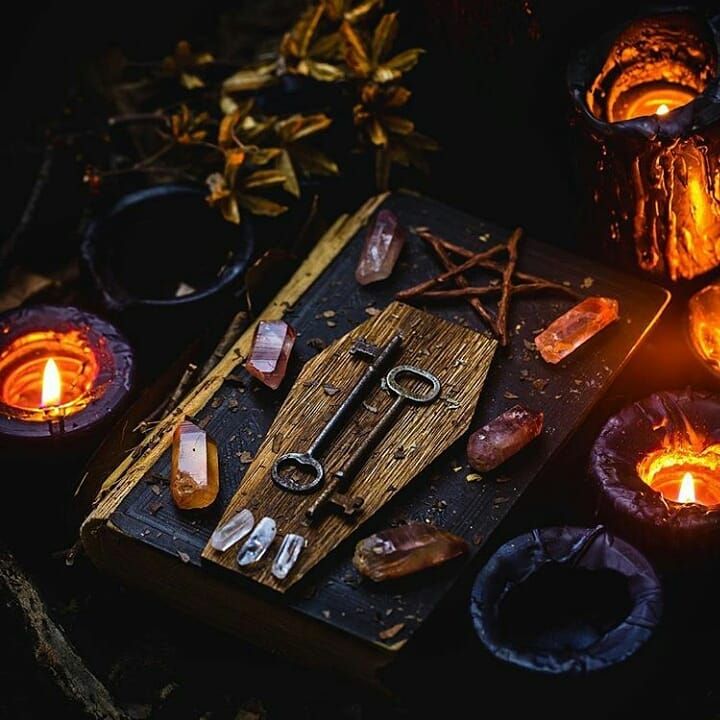

1.Ancient Pagan Traditions
Many aspects of Wicca, including its spellcasting practices, are rooted in ancient pagan cultures that venerated nature, deities, and the cycles of the seasons. These spells incorporate elements from these traditions, such as the use of herbs, candles, and rituals to invoke or honor various gods and goddesses.
2.Cunning Folk and Folk Magic
In medieval Europe, individuals known as cunning folk or wise women and men practiced folk magic to provide healing, protection, and divination services to their communities, including Family Protection Spells. These practitioners often used herbal remedies, charms, and rituals to influence outcomes and ward off negative energies. Wiccan spellcasting incorporates some of these folk magical practices, adapting them to modern contexts.
3.Western Esotericism
The 19th and early 20th centuries witnessed a revival of interest in Western esoteric traditions, including ceremonial magic, alchemy, and mysticism. Figures like Aleister Crowley and the Hermetic Order of the Golden Dawn contributed to the development of magical systems that influenced the foundation of Wicca. Some elements of ritual structure, symbolism, and energy manipulation in Wiccan spells have their roots in these esoteric traditions.
4.Celtic and Norse Influences
Wicca places emphasis on the worship of nature and the cycles of the seasons, often drawing from Celtic and Norse mythology. Many Wiccan spells incorporate invocations of deities from these pantheons and align with the agricultural and lunar cycles observed by these ancient cultures.
5.Gerald Gardner and Doreen Valiente
Often referred to as the “Father of Wicca,” Gerald Gardner played a pivotal role in shaping Wiccan practices, including spellcasting. Drawing inspiration from a mix of historical sources, Gardner developed rituals and spellcasting techniques that became foundational to modern Wicca. Doreen Valiente, another influential figure, collaborated with Gardner to refine and expand upon these practices, further shaping the modern Wiccan spellwork.
6.Innovations and Personal Interpretations
As Wicca evolved and gained followers, individual practitioners brought their own innovations and interpretations to spellcasting. Modern Wiccans often explore various magical traditions, adapt practices from different cultures, and develop new spellcasting techniques that resonate with their personal beliefs and experiences.
Principles of Wiccan Spellcasting
Certainly, the principles of casting Wiccan spells provide a framework for practitioners to effectively harness their intentions, energies, and the forces of the universe to bring about desired outcomes. These principles guide the practitioner in creating a focused and meaningful ritual. Here, we’ll delve deeper into the key principles that underlie Wiccan spellcasting:
- Intent and Will: The cornerstone of any successful Wiccan spell is a clear and well-defined intention. The practitioner must identify their desired outcome and focus their energy and thoughts on it. The strength of one’s willpower and determination plays a crucial role in shaping the energy of the spell.
- Alignment with Natural Cycles: Wiccans often align their wiccan spells with the phases of the moon, each of which carries distinct energies that can enhance the effectiveness of a spell. The waxing moon is ideal for spells of growth and attraction, the full moon for culmination and empowerment, the waning moon for banishing and releasing, and the new moon for new beginnings.
- Tools and Symbols: Ritual tools serve as conduits for directing and focusing energy. These tools may include candles, crystals, herbs, athames (ritual knives), wands, and more. Each tool holds symbolic meaning and corresponds to certain energies or intentions. For example, a green candle might be used for spells related to prosperity and abundance.
- Visualization and Meditation: Visualization is a powerful technique in spellcasting. Practitioners use their imagination to vividly picture the desired outcome as if it has already occurred. This process infuses the intention with emotional energy and helps align the practitioner’s consciousness with the goal. Meditation before or during a spell helps calm the mind and attune the practitioner to the energies being worked with.
- Elemental and Deity Invocations: Many Wiccans invoke the elements (earth, air, fire, water) as well as specific deities that resonate with their intention. Invoking the elements helps to create a balanced and harmonious environment forWiccan spells. Deity invocations establish a connection with divine energies that can guide and amplify the spell’s effects.
- Casting the Circle: Before performing Wiccan spells, Wiccans often cast a circle, creating a sacred and protected space in which to work. The circle serves as a boundary between the mundane world and the magical space, allowing the practitioner to harness and contain the energies generated during the spell.
- Timing and Correspondences: Beyond lunar phases, Wiccans consider the day of the week, planetary alignments, and other astrological and seasonal factors when casting spells. Each day and planetary alignment is associated with specific energies and intentions. These correspondences help practitioners choose the most suitable timing for their spellwork.
- Ethics and Responsibility: The Wiccan Rede, which states, “An it harm none, do what ye will,” underscores the ethical framework of Wicca. Practitioners are guided by the principle of not causing harm to oneself or others through their magical workings. This ethical stance ensures that spells are used for positive purposes and personal growth.
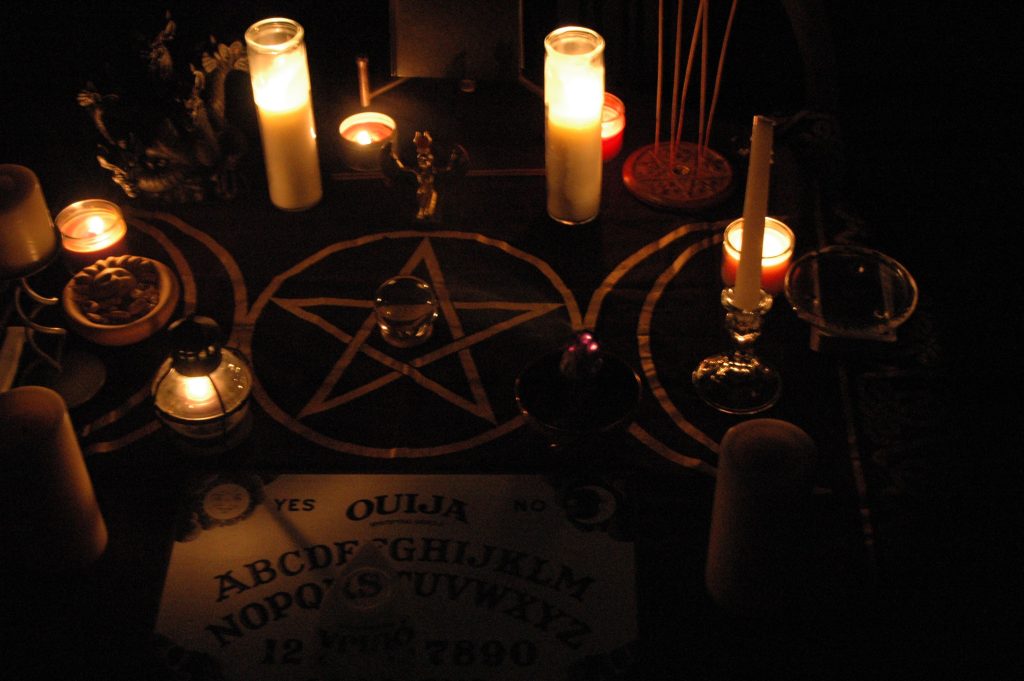

Types of Wiccan Spells
Wiccan spells encompass a wide array of intentions and purposes, reflecting the diverse needs and desires of practitioners. These spells are crafted using specific correspondences, rituals, and tools to focus and direct energy toward a particular goal. While the possibilities are virtually endless, here are some common types of Wiccan spells:
Love Spells: These spells aim to attract love, enhance romantic relationships, or foster self-love. They may involve the use of pink or red candles, herbs like rose petals or lavender, and rituals focused on invoking the energies of love deities.
Healing Spells: Healing spells focus on physical, emotional, or spiritual well-being. They often incorporate herbs, crystals, and visualization techniques to promote health and aid in recovery.
Prosperity and Abundance Spells: These Wiccan spells are designed to attract wealth, success, and abundance into one’s life. Green candles, coins, and herbs like basil or cinnamon might be used to symbolize prosperity.
Protection Spells: Protection spells create energetic shields against negative energies, harm, or unwanted influences. Practitioners may use black candles, salt, or protective crystals like obsidian.
Cleansing and Purification Spells: These spells clear away negative energies and purify a space, an object, or a person. Burning sage or using consecrated water are common methods in these spells.
Divination and Psychic Enhancement Spells: These Wiccan spells enhance intuition, psychic abilities, and divinatory skills. Amethyst crystals, mugwort, and meditation techniques are often utilized to open the third eye and enhance perception.
Binding and Banishing Spells: Binding spells are used to restrict or stop negative influences, while banishing spells are aimed at removing unwanted energies, habits, or people from one’s life.
Fertility Spells: Fertility spells seek to promote fertility, both in terms of conception and creative endeavors. Moonstone, pomegranate, and rituals focused on lunar cycles might be used.
Confidence and Empowerment Spells: These spells are crafted to boost self-confidence, self-esteem, and personal empowerment. Yellow candles, sunflower petals, and affirmations are often incorporated.
Communication and Harmony Spells: These spells promote effective communication, understanding, and harmonious interactions in relationships. Blue candles, chamomile, and rituals centered around clear communication might be employed.
Elemental Spells: Wicca reveres the four elements—earth, air, fire, and water. Elemental spells harness the energies of these elements for specific purposes, such as grounding, creativity, inspiration, and emotional healing.
Sabbat and Esbat Spells: Wicca celebrates eight sabbats (seasonal festivals) and holds esbats (lunar rituals). Spells performed during these occasions often reflect the themes and energies associated with the specific holiday or moon phase.
Wiccan spell removal: Wiccan spell removal is a practice that involves undoing or dispelling spells that have been previously cast. Just as spellcasting is a fundamental aspect of Wiccan traditions, the recognition of unintended or no longer needed spells is equally important. Whether seeking to release the energies of a spell that no longer serves its purpose or to counteract the effects of negative intentions, spell removal rituals in Wicca often involve a combination of focused intention, symbolism, and ritual actions. These rituals aim to restore balance, cleanse energies, and realign the practitioner with their desired intentions and the natural flow of energies within the universe.
It’s important to note that ethical considerations and the Wiccan Rede guide the use of spells. Wiccans are mindful of using their spellcasting abilities responsibly and avoiding harm to themselves or others.
The Ritual Process
The ritual process within Wiccan spells follows a structured and intentional sequence of actions designed to connect with the energies of nature, the divine, and one’s own intentions. Wiccan rituals, including spellcasting, are rich in symbolism and symbolism, creating a powerful framework for practitioners to manifest their desires, celebrate the cycles of life, and deepen their spiritual connection. Here’s a detailed breakdown of the ritual process in Wiccan spellcasting:
- Preparation and Intent: Begin by clarifying your intention for the spell. What do you want to manifest or achieve? Clearly define your goal and set your intent.
- Gathering Tools and Materials: Collect the tools and materials that align with your intention and the spell’s purpose. These might include candles, crystals, herbs, incense, and any other items that resonate with the energy you’re working with.
- Casting the Circle: To perform Wiccan spells, start by casting a circle to create a sacred and protected space. This can be done physically or energetically, marking the boundary between the mundane world and the magical space.
- Invocations and Opening Statements: Call upon the elements, deities, or energies that align with your intention. You might also make opening statements to set the tone and purpose of the ritual.
- Centering and Grounding: Take a moment to center yourself and connect with the energies of the earth. Grounding helps you establish a strong foundation for the work ahead.
- Energy Visualization: Visualize the energy you’re working with. Imagine it flowing from the earth, the elements, or the cosmos into your body, and then through your hands and tools.
- Spellwork: Perform the specific spellwork aligned with your intention. This could involve chanting, reciting incantations, lighting candles, using crystals, or any other actions that resonate with your goal.
- Symbolism and Gesture: Incorporate symbolic gestures and actions that amplify the energy of the Wiccan spells. For example, you might sprinkle salt for purification, move your hands in specific patterns, or create sacred symbols.
- Energy Raising: Raise energy through focused intention, movement, and visualization. This could involve dancing, clapping, or rhythmic breathing to build up the energy that will fuel your spell.
- Release and Manifestation: As the energy reaches its peak, release it toward your intended goal. Visualize your desired outcome as if it’s already happening. Feel the energy flow out of you and into the universe.
- Gratitude and Thanks: Express gratitude to the elements, deities, and energies you invoked. Thank them for their presence and assistance.
- Closing the Circle: Close the circle, releasing the energies you’ve worked with and returning the space to its normal state. This ensures that the boundaries between the magical and mundane worlds are no longer in place.
- Reflection and Integration: After the ritual, take some time to reflect on your experience. Pay attention to any signs, feelings, or insights that may arise in the days following the Wiccan spells. Journal your thoughts to track your progress.
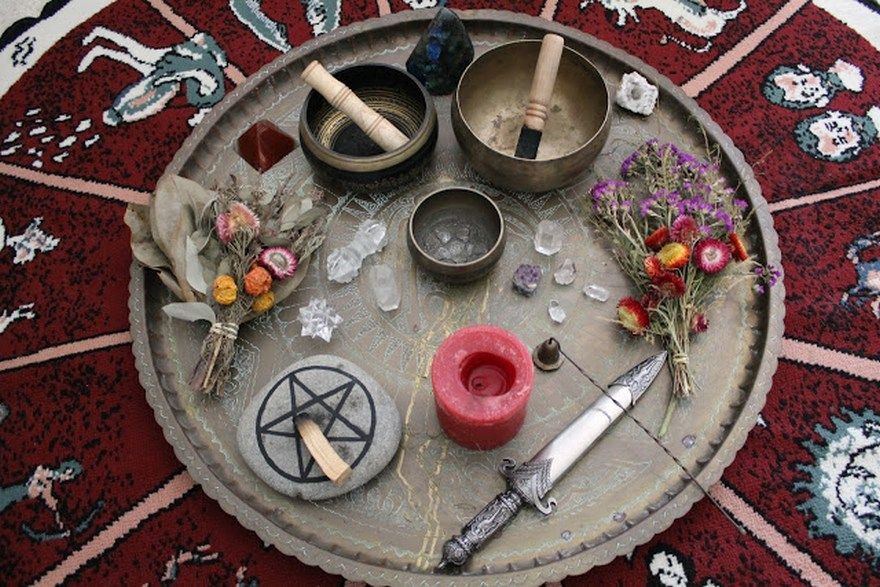

Ethical Considerations in Wiccan Spells
Ethical considerations are of utmost importance in Wiccan spellcasting, reflecting the core principles of Wicca that emphasize harm none, respect for nature, and responsible use of magical power. Wiccans are guided by a strong moral compass when performing spells, ensuring that their actions are aligned with positive intentions and do not cause harm to themselves, others, or the environment. Here’s a deeper look into ethical considerations in Wiccan spells:
- The Wiccan Rede: The Wiccan Rede is a central ethical guideline in Wiccan spells , often summarized as “An it harm none, do what ye will.” This means that practitioners are free to pursue their desires and intentions as long as their actions do not cause harm. The Rede encourages a mindful and compassionate approach to magic.
- Positive Intentions: Wiccans emphasize using magic for positive purposes, such as healing, protection, personal growth, and empowerment. Spells that seek to manipulate or control others, cause harm, or infringe upon free will are generally considered unethical.
- Responsibility and Accountability: Practitionersof Wiccan spells take responsibility for the consequences of their magical actions. They understand that the energy they put into a spell can have far-reaching effects and are prepared to accept the outcomes, whether expected or unexpected.
- Informed Consent: When performing magic that involves others, practitioners ensure that they have the informed consent of all parties involved. This applies to love spells, healing spells, or any magical work that affects another person’s life or well-being.
- Environmental Stewardship: Wicca places great importance on the interconnectedness of all living beings and the natural world. Practitioners strive to minimize harm to the environment, using sustainable and ethically sourced materials in their spells and rituals.
- Cultural Sensitivity: Wiccans respect and honor the spiritual and magical practices of other cultures. They avoid appropriating or misusing elements from different traditions and approach cross-cultural magic with sensitivity and understanding.
- . Non-Manipulation: Using Wiccan spells to manipulate others or attempt to force specific outcomes against someone’s will is considered unethical. Wiccans believe in honoring the autonomy and free will of individuals.
- Personal Growth and Empowerment: Wiccan spells are often used as a tool for personal growth and self-discovery. Practitioners focus on their own transformation and empowerment, rather than seeking to control or dominate others.
- Balance and Harmony: Wiccans strive to maintain balance and harmony in their magical practices. They avoid extremes, harmful intentions, and any actions that disrupt the natural flow of energies.
- Karmic Awareness: Many Wiccans believe in the concept of karma, which suggests that the energy one puts into the world returns to them. This belief reinforces the importance of ethical conduct and responsible spellcasting.
Modern Day Wicca
In recent years, Wicca has gained popularity as a spiritual path that resonates with individuals seeking a connection to nature and a sense of personal empowerment. Wiccan spells are now widely practiced by a diverse community, often adapting to contemporary needs and beliefs. Online forums, books, and workshops provide resources for aspiring practitioners to learn about spellcasting, rituals, and the underlying principles of Wicca.
Learning Wiccan Spells as a Beginner
Learning Wiccan spells as a beginner involves a combination of study, practice, and personal exploration. Here’s a step-by-step guide to help you get started on your journey into Wiccan spellcasting:
Study Wicca and Basic Concepts: Begin by studying the foundational principles of Wicca. Read books, articles, and online resources to gain an understanding of Wiccan beliefs, ethics, deities, rituals, and symbolism.
Choose Your Path or Tradition: Explore different Wiccan traditions and paths to find one that resonates with you. Research traditions like Gardnerian, Alexandrian, Dianic, or eclectic Wicca, and determine which aligns with your beliefs and interests.
Understand Magical Correspondences: Learn about correspondences such as colors, herbs, crystals, moon phases, and days of the week. These correspondences are associated with specific intentions and can enhance the effectiveness of your spells.
Start with Basic Spells: Begin with simple spells that are suitable for beginners. Focus on spells related to protection, healing, empowerment, and personal growth. These spells often require minimal tools and can be practiced in a safe and controlled manner.
Gather Tools and Materials: Assemble the tools and materials you’ll need for casting Wiccan spells, such as candles, crystals, herbs, and essential oils. These items should correspond to the intention of your spell.
Create Sacred Space: Before casting Wiccan spells, create a sacred space by casting a circle or using other methods to establish a boundary between the mundane world and the magical realm.
Visualization and Meditation: Practice visualization and meditation techniques to enhance your ability to focus, concentrate, and direct energy. Visualization is a key component of successful spellcasting.
Write Your Own Spells: As you become more comfortable, start crafting your own spells. Write down your intentions clearly and concisely, and choose corresponding elements and actions that resonate with your goal.
Perform Rituals and Spells: Follow the steps of the ritual process: setting intention, casting the circle, invoking deities or energies, performing the spellwork, raising energy, and closing the circle. Practice your Wiccan spells with dedication and focus.
Record Your Experiences: Keep a magical journal to document your spellcasting experiences, outcomes, thoughts, and reflections. This journal will help you track your progress and learn from your successes and challenges.
Respect Ethics and Responsibility: Adhere to ethical considerations, such as the Wiccan Rede, by ensuring that your spells do not harm anyone or anything. Use your magical abilities responsibly and with a clear conscience.
Seek Guidance and Community: Join online forums, social media groups, or local Wiccan circles to connect with other practitioners. Learning from experienced Wiccans can provide valuable insights and guidance.
Continue Learning and Growing: Wicca is a lifelong journey of learning and growth. Continuously study, practice, and explore new aspects of Wiccan spirituality to deepen your understanding and connection.
Remember that Wicca is a personal and individual path, so adapt your practices to suit your beliefs and preferences. Approach your studies and spellcasting with an open heart, a sense of wonder, and a deep respect for the natural world.
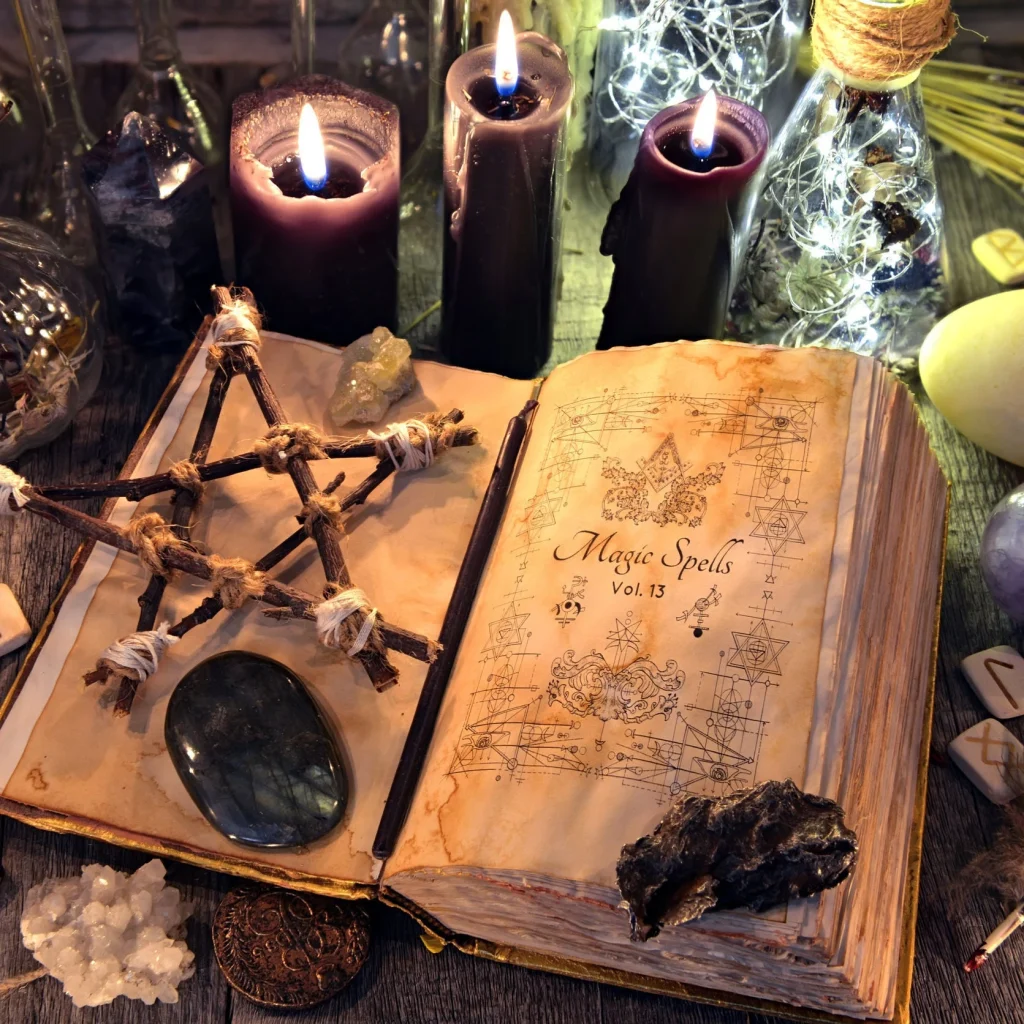

Wiccan Spell Books
In the realm of Wicca, spellcasting is an art that has been passed down through generations, combining ancient wisdom with contemporary understanding. One of the key resources that Wiccans turn to for guidance and inspiration in their spellcraft is the realm of Wiccan spell books. These magical tomes serve as repositories of knowledge, offering a diverse array of spells, rituals, correspondences, and insights to practitioners seeking to harness the energies of the universe.
Wiccan spell books come in various forms, catering to practitioners of all levels of experience. For those new to Wicca, introductory spell books provide a foundation in the fundamental principles of spellcasting, covering topics such as intention-setting, symbolism, and basic rituals. These books often include step-by-step instructions and explanations, making them an invaluable starting point for novices.
Conclusion
Wiccan spells serve as a captivating gateway into the enchanting realm of ritual magic, seamlessly weaving together the wisdom of ancient traditions with the tapestry of contemporary spirituality. In a world where seekers yearn for deeper connections with the cosmos and yearn to uncover profound meaning in their lives, the age-old practice of spellcasting retains its remarkable potency and timeless relevance.
With its roots firmly embedded in the rich soil of reverence for the natural world, the interconnectedness of all living things, and the indomitable power of focused intention, Wiccan spells stand as a profound and enduring reminder that the mystical currents that shape the very fabric of our universe are not distant and elusive, but remarkably accessible to those intrepid souls who dare to embark upon the magical journey.

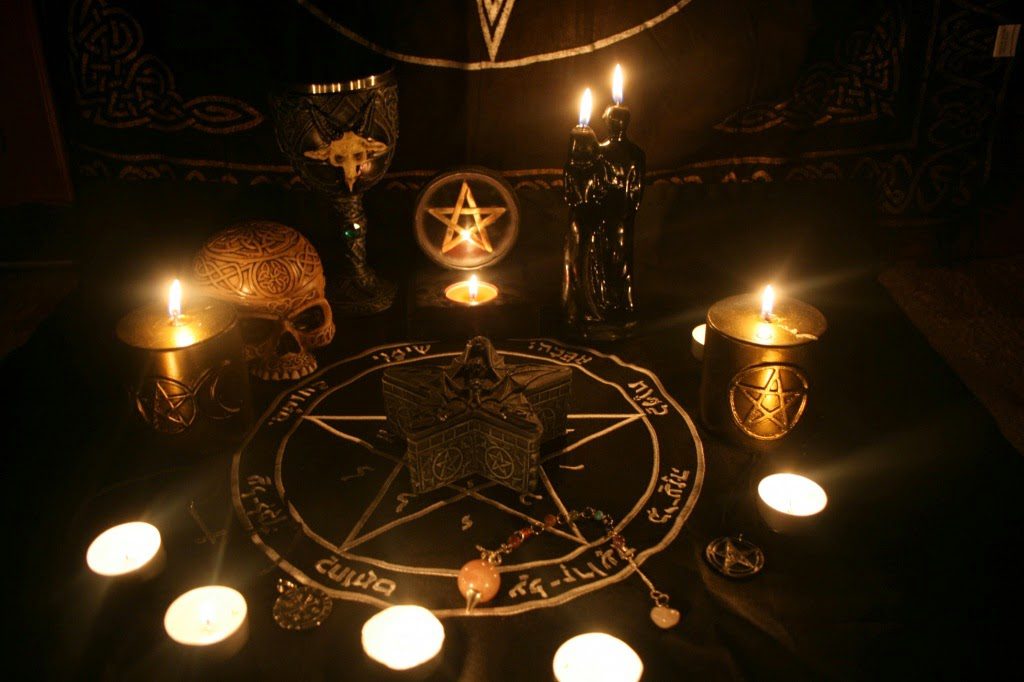
Pingback: Exploring the Incredible World of Wiccan Spell Books: 10 Tips to Help You Choose the Right Spell Book - Witch Symbols
Pingback: The Mystical World of House Protection Spells - Witch Symbols
Pingback: Unlock the Power of Spells: A Beginner's Guide to Magic - Witch Symbols
My grandmother started me in this world of spiritualism and I am not going to leave it. I have learned a lot and I plan to continue doing it. I love it, thanks for all the material that you contribute to new generations like me.
we glad to hear that, you are welcome
Pingback: Exploring the World of Wiccan Spells: Ancient W...